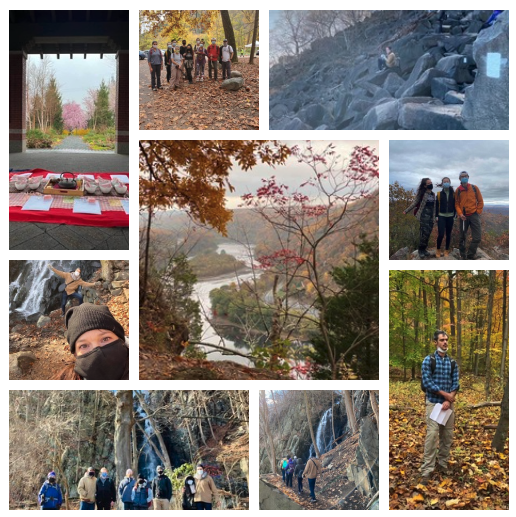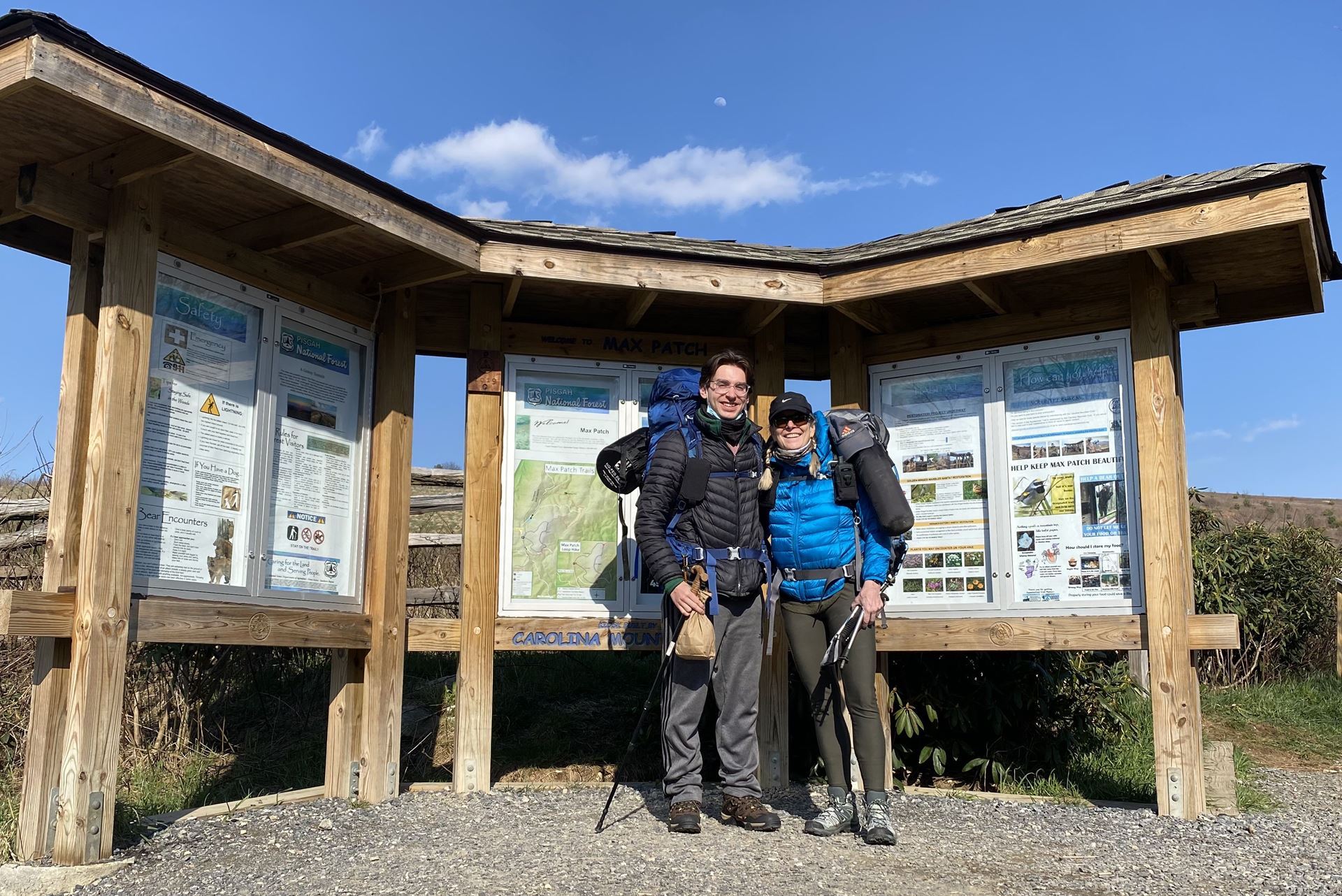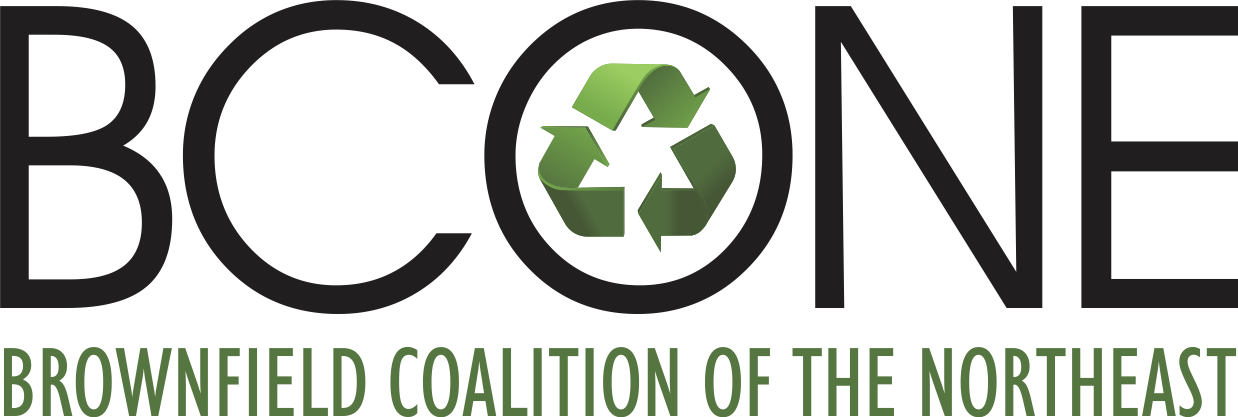By Steve Dwyer
How does one put a positive spin on a pandemic? Maria Coler found two bona fide ways to do it: forming a virtual BCONE book club and starting a hiking club. Both are gaining traction and getting high marks from participants at a time when they need it most.
Coler, President of Hydrotechnology Consultants Inc. (HCI), Jersey City, N.J., formed the BCONE Brownfields, Books and Beer Club -- formatting it as a virtual event -- during the early part of 2020, when people were working remotely and stuck at home for long periods of time.
“My aim has been to raise the environmental consciousness of brownfield practitioners.” The iconic stories demonstrate that the average person possesses the ability to effect real and substantial change,” Coler says.
Coler envisions the book club as a potential gateway to attracting new people to BCONE and the brownfield industry. One pre-existing challenge is that many budding environmental professionals opt for careers in more “sexy” fields, such as renewable energy, sustainability and climate change. Many overlook brownfields as a career.
“Anyone living around contaminated sites or those teaching about contaminated sites -- they all have the power to convey information about these sites,” says Coler, who has more than 15 years of experience in the environmental consulting field and is a Licensed Site Remediation Professional (LSRP) with the state of New Jersey.
There are some compelling historical examples about lessons learned --and they are being showcased in the book club.
Coler cites Love Canal during the late 1970s as something that has impacted peoples’ “heads and, more importantly, their hearts. That environmental saga changed the world and highlighted how human health and safety have been put in peril. The purpose of the book club is to remind people of the arc of environmental consciousness: where we are and how much further we need to go.”
Coler cites scientists and citizen activists who have propelled the environmental movement forward. One is Rachel Carson. The book club participants were exposed to the voice and courage that Carson exuded in her iconic book “Silent Spring,” which challenged the practices of agricultural scientists and the government, calling for change in the way humankind viewed the natural world.
In writing the book, Carson, a writer, scientist and ecologist spoke out to remind that humanity is a vulnerable part of the natural world, and is subject to the same damage as the rest of the ecosystem. Testifying before Congress in 1963, Carson called for new policies to protect human health and the environment. Carson, who died in 1964, grew up in the rural river town of Springdale, PA.
“It was an awakening—it informed the whole environmental movement of the1960s, and it woke up a generation, so we started with that book,” says Coler.
Coler says that without Rachel Carson there would be no Greta Thunberg, the Swedish environmental activist known for challenging world leaders to take immediate action for climate change mitigation -- all at the age of 18.
“It’s a passing of the baton -- and it’s a narrative that says, ‘never underestimate the ability of a small group of people to change the world,' in fact, it’s often the small groups that effect change most dramatically.”
The group has also read “Love Canal: A Toxic History from Colonial Times to the Present” (Richard S. Newman) and Pulitzer Prize winner, “Toms River” (Dan Fagin.)
In the summer of 1978, residents of Love Canal, Niagara Falls, N.Y., protested against the leaking toxic waste dump in their midst, a 16-acre site containing 100,000 barrels of chemical waste that infested their neighborhood. Initially seeking evacuation, area activists soon found they were engaged in a far larger battle over the meaning of America’s industrial past and its environmental future.
“While Silent Spring produced a narrative centered around the dangers of pesticides, Love Canal and Toms River opened the nation’s eyes to hazardous waste. in their midst.”
“We are exploring the commonalities of these stories -- you have these archetypes who are integral to each story: the attorney who won’t give up, the citizen scientist who won’t take no for an answer, the civil servant who acts out of a sense of duty, and the scientist who vows to take a closer look, despite conventional wisdom.”
In the case of Love Canal, the activist citizens exerted enough pressure that it forced former President Jimmy Carter to sign sweeping legislation now known as Superfund. “The aim of the book club is to attract people to the mission of remediating brownfield sites. To build a sustainable 21st century, we must address the vestiges of the 19th and 20th centuries.”
“These stories teach us that these are hard-earned rights—that we have to keep earning them every day,” says Coler, who holds a B.S. in Environmental Science, B.A. in Physics and minor in English Literature from Rutgers University and who is often retained as an expert witness. “These stories have the seeds of knowledge to help us build a sustainable world. They are not radical stories. They are the stories of regular citizens fighting for their basic rights to live in safe neighborhoods with clean water, soil, and air.”
The book club has evolved from a few core members to nearly 20 registered participants. Coler is a guest lecturer on topics covered in the book club for the Phase I/Phase II course taught by Angelo Lampousis, a BCONE board member and City College of New York (CCNY) professor. Students from the CCNY class and the Stevens Institute of Technology program led by Professor Dibyendu “Dibs” Sarkar are invited to join the book club and gain extra credits, as well as a unique understanding of the brownfield industry and the history of the environmental movement in the United States. Inquisitive students often remain on the Zoom call to ask questions long after the book club session is over. “My goal is to increase the participation of graduate and undergraduate students, to plant the seeds of environmental awareness and to give them a reason to join the effort to remediate contaminated sites across the country and the world.”
Regarding the hiking club, Coler had to “re-think activities that were possible and safe when Covid hit. The hikes create a sense of community and environmental awareness. A geology field guide explains the ancient origins of the land features, while an ecology field guide describes the flora and fauna indigenous to the area and how the ecosystem may have changed over time with human intervention and environmental degradation.

Photos from some of the hiking trips and the tea ceremony.
Coler and Anne Lazo, BCONE webmaster, avid hiker and runner, and owner of Eagle Soars, a marketing firm, are taking the hiking club to “the next level” in the spring of 2022, when an overnight excursion is planned on the Appalachian Trail. In addition to ecology and geology field guides, and with a nod to recent severe weather events, Coler and Lazo plan to enlist the involvement of a survivalist, who will teach the participants survival skills such as foraging and fire building. Look for registration information in 2022.

Lazo backpacking on the AT in North Carolina with her nephew.

